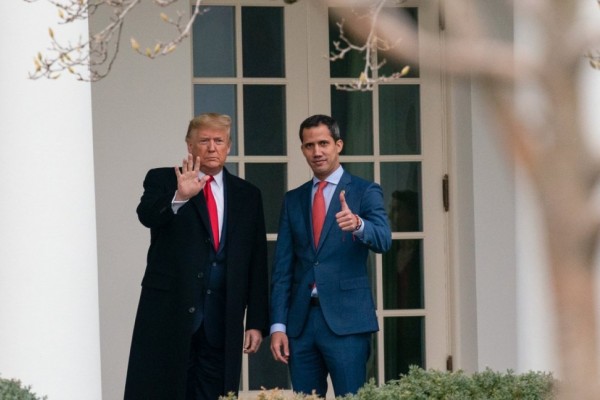-

What worries the United States most about Lula
What has Washington actually most worried about Lula is the reemergence of a powerful non-aligned movement, writes Steve Ellner. The majority of the world’s population has not joined the sanctions regime against Russia and are gradually coalescing around an a new and emerging economic, financial and commercial system alternative to the West.
-

Why isn’t Trump about to be jailed for his criminal behaviour?
On appearance, the Democrats are going after Trump and are outraged by what happened on January 6. But there is a limit to what they are willing to do to right the wrong. The Democrats would much prefer to tolerate rightists, no matter how outrageous their actions are, than to clobber the right and run the risk of permitting the emergence of a leftist pole in US politics that would fill the gap.
-

The impasse of the Latin American left
The Impasse of the Latin American Left presents a valuable analysis that contributes to the understanding of the Pink Tide phenomenon, but, in my opinion, doesn’t tell the whole story. Errors and shortcomings have to be contextualized not by simply recognizing the existence of adverse conditions but by addressing the issue of the feasibility of options.
-

How the issue of Ukraine is playing out on the left
A significant issue that has generated much heated discussion on the left is not over whether Russia’s illegal invasion of Ukraine is justifiable. Few, that is very few, say it is. Rather the key question is whether raising the issue of NATO enlargement distracts from the atrocity of Putin’s aggression. Indeed, some on the left accuse those who raise the issue of NATO of justifying the invasion.
-

US policy toward Venezuela was never about promoting democracy
Last year, then Special Representative Elliott Abrams declared that the Trump Administration was “working hard” to oust Venezuelan President Nicolás Maduro. Now Abrams is urging the Venezuelan opposition to participate in the upcoming state and local elections this November. Washington’s recent backpedaling, however, does not mean they’ve given up on intervening in Venezuela’s internal affairs.
-

Pedro Castillo’s victory raises hopes beyond Peru
Peru’s June 6 presidential election pitted two candidates with very dissimilar backgrounds against each other: Keiko Fujimori, a former first lady and three-time presidential candidate with the solid support of the nation’s elite, against Pedro Castillo, who is the epitome of an outsider. Castillo, a primary school teacher since the age of 25, has never held an elected office.
-

US sanctions on Venezuela are deadly—and facing mass resistance
Since the attempted coup of April 2002, when the Venezuela military attempted to depose then-President Hugo Chávez and install Pedro Carmona, the country’s leftist governments have been pitted against a united opposition, intent on achieving regime change by any means possible. But now, with the continuation of punitive US sanctions, such extreme polarization seems to be weakening.
-

David Harvey’s new thesis is that ‘capitalism is too big to fail.’ Is it?
Up until now, famed geographer David Harvey has been considered a leading Marxist. In my opinion, Harvey’s contributions to Marxist thinking, with regard to both his theoretical formulations and efforts to make Marxism accessible to large numbers of people, are undeniable. All the more reason to be disappointed by his recent thesis.
-

Beyond the boliburguesía thesis
In Venezuela, as elsewhere in Latin America, the construction of such a party is necessary in order to achieve authentic democracy. The democratization of the PSUV and greater input from the grassroots are more imperative now than at any other time for the very survival of the Chavista project and the success of its strategy for change.
-

Terrorism in Venezuela and its accomplices
The private media and important actors both at home and abroad including Washington have downplayed, and in some cases completely ignored, the terrorist actions perpetrated against the Venezuelan government over the past three months.



